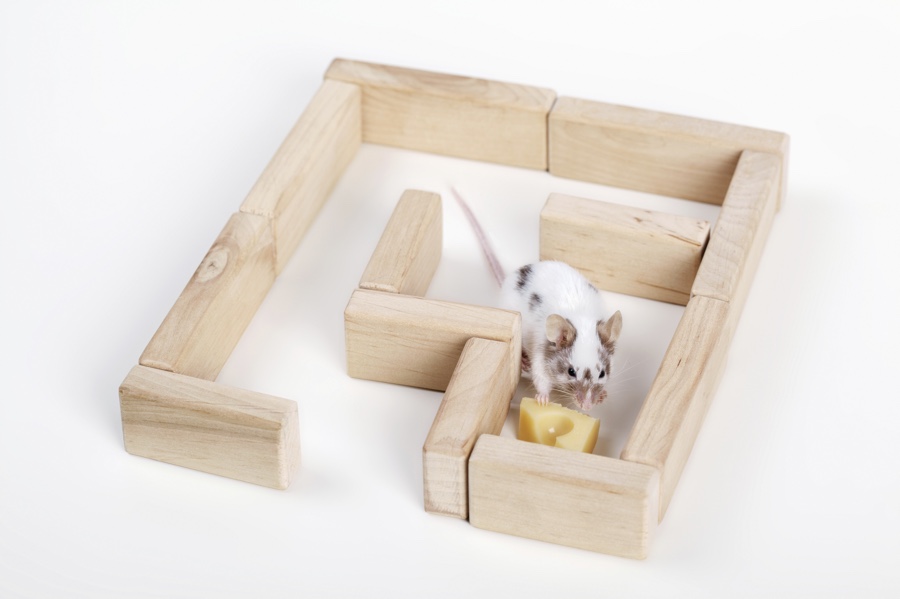In the early 1990s, researchers at MIT accidentally proved you can get more done by thinking less about what you’re doing.
They measured how long it took rats to find the chocolate at the far end of a maze. During the early runs, the rats would seem to wander their way through the maze idly. Gradually, the rats would get more focused and start finding the chocolate faster.
What’s fascinating is what they observed in the rats’ brains. At first, the brains were firing with lots of activity. They could smell the chocolate, and they were figuring out how to get to it. With experience, they developed a routine for getting through the maze. They got to the chocolate faster, and had an easier time of it.
If you develop routines, you can get more done with less effort.
Do you drive the same route to and from work every morning? There’s a certain amount of pragmatism involved (one route is fastest, allowing for traffic), but there’s a good degree of routine to it, too. Get in the car, and your basal ganglia takes over. You’ve solved the problem (how to get to work) once, and now you can reuse that solution twice a day instead of solving the same problem over and over again.
This is why we follow recipes instead of reinventing bread every time we want a sandwich. They’re tried and true. They’re proven. We can still get it wrong, but the recipe makes it much more likely that we’ll get something edible out of the oven.
Here are five more ways routines can help you get more done with less effort:
-
Start the day off right. Want to get out the door on time in the morning? Develop a morning routine that you can get started on before your brain is fully awake. Similarly, an evening routine will help you relax and get to bed on time, ready to sleep.
-
Don’t sweat the small stuff. Albert Einstein famously had identical outfits so he didn’t have to think about what he put on in the morning. It’s a decision that he could make once. This freed him to think about other things, like cats.
-
Create a project template. A template will let you create a new project quickly and reliably. You don’t need to spend time making sure you’ve remembered everything from last time. This can be as simple as a photocopied worksheet or as high-tech as an AppleScript for OmniFocus.
-
Checklists. Routines don’t have to be stored in your head. Checklists are a great way to make sure you get a routine right every time. What starts as a read-do checklist may become do-confirm as you internalize the routine.
-
Packing lists. Packing lists are a huge time- and energy-saver when you’re going on vacation. We have packing lists for weekend getaways and weeklong road trips to visit family. Not only do you know you’ve gotten out the door with everything, but you can use the same packing list to make sure you come home with everything you took.
Routines have a bad reputation. We can associate them with being stuck in a rut. Boring. We have a need for variety, true, but routines are also familar, and comforting, which meets our need for security. Turn the mundane over to routine, and satisfy your need for variety by taking a great vacation, not picking out socks.
Question: What have you most successfully turned over to routine? Share your thoughts in the comments, on Twitter, LinkedIn, or Facebook.

